Did you know that potassium is crucial for human health? It plays a vital role in many bodily functions, including the nervous system, heart health, and muscle function. In fact, without potassium, our bodies would not be able to function properly. This mineral is also crucial for reducing blood pressure and preventing strokes, osteoporosis, and kidney stones.
Potassium can be found in many foods, including fruits and vegetables. Some of the best sources of potassium include bananas, potatoes, spinach, tomatoes, and apricots. If you are not getting enough potassium from your diet, you may want to consider taking a supplement. Too much or too little potassium can have adverse effects on your health. Keep reading to learn more about this vital mineral.
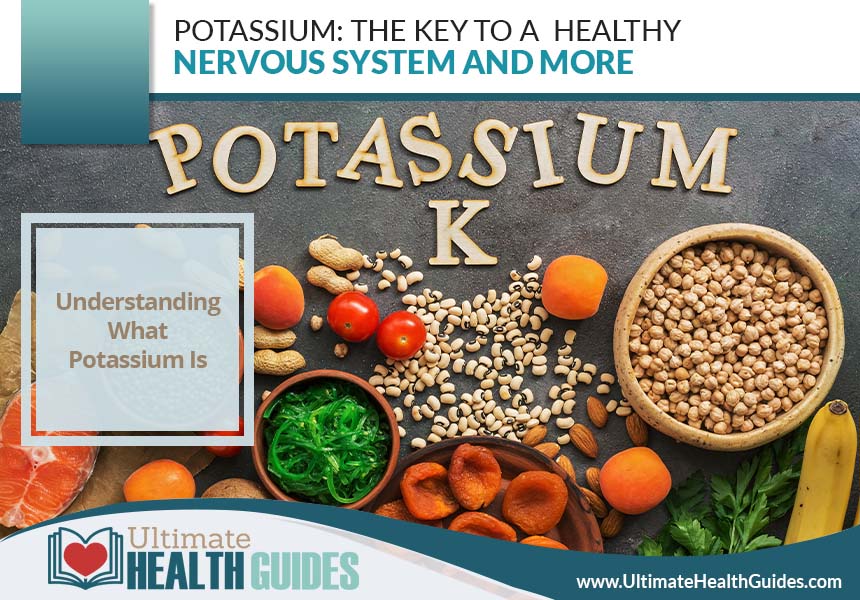
Understanding What Potassium Is
Potassium is an essential mineral for human health. It is involved in a wide range of physiological processes, including muscle contraction, nerve function, and blood pressure regulation. Potassium is found in many foods, including fruits, vegetables, meat, and dairy products. The Recommended Dietary Allowance (RDA) for potassium is 4700 mg per day for adults.
Most people get enough potassium from their diet and do not need to take supplements. However, some people may need to take potassium supplements if they have certain medical conditions or are taking certain medications that deplete potassium levels. Potassium supplements are available in tablet, capsule, and liquid forms. They should be taken with meals to reduce the risk of gastrointestinal side effects.
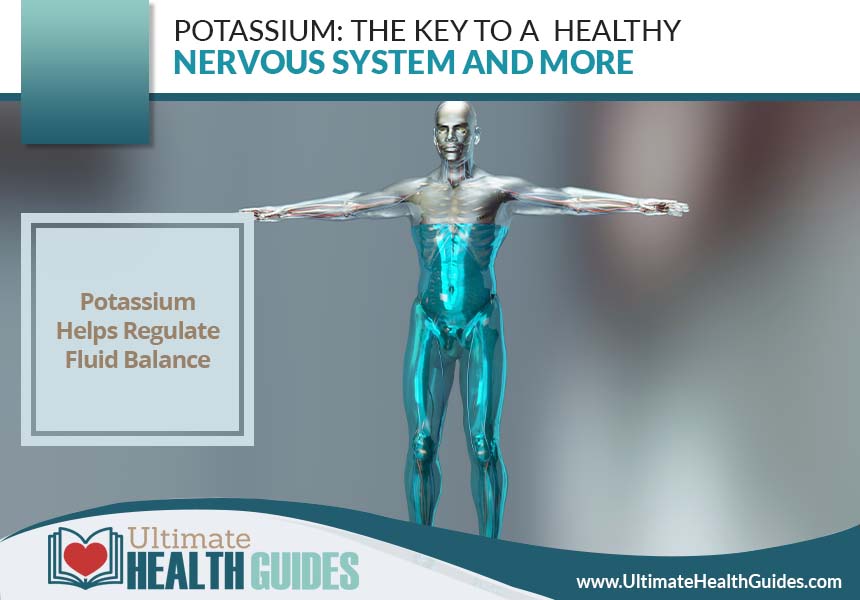
Potassium Helps Regulate Fluid Balance
Potassium is an essential mineral that helps regulate fluid balance in the body. It does this by working with sodium to maintain the correct electrolyte levels in the blood. Potassium also helps keep the heartbeat regular and supports healthy nerve function. When potassium levels are too low, it can lead to dehydration, muscle cramps, and irregular heartbeat.
Conversely, if potassium levels are too high, it can cause problems with kidney function and swelling in the extremities. For this reason, it is necessary to maintain a healthy balance of potassium in the diet. Foods that are high in potassium include avocados, bananas, sweet potatoes, and dark leafy greens.
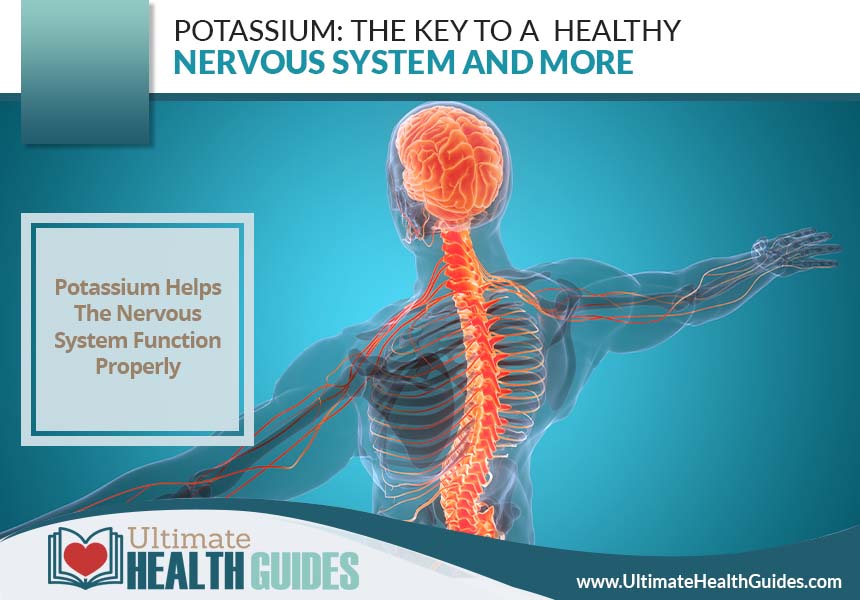
Potassium Helps The Nervous System Function Properly
Potassium is an essential mineral that helps keep the body healthy in several ways. One of the most crucial roles of potassium is to support the nervous system. Potassium helps maintain the electrical balance in nerve cells, which is necessary for proper nerve function. Without enough potassium, nerves can become overloaded and begin to fire erratically, which can lead to muscle weakness and paralysis. In addition, potassium is necessary for the proper transmission of messages between nerve cells.
This process, known as neurotransmission, is crucial for normal brain function. Without adequate potassium, neurotransmission can be impaired, leading to problems with learning and memory. Potassium also helps protect nerve cells from damage; this is because potassium helps maintain the cell’s fluid balance, which is necessary for cell health. When cells are properly hydrated, they are less likely to be damaged by toxins and stressors. Therefore, adequate potassium intake is crucial for proper nervous system function.
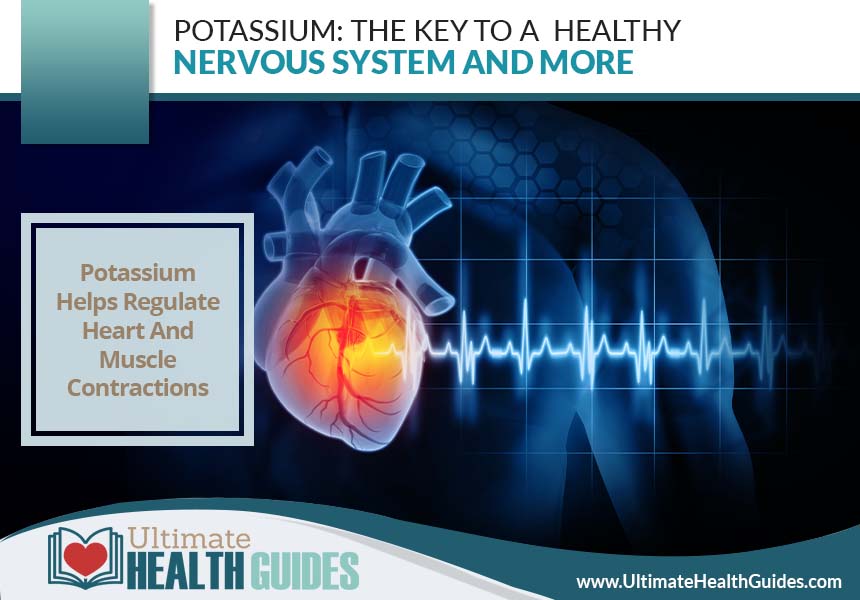
Potassium Helps Regulate Heart And Muscle Contractions
Potassium is an essential mineral that helps regulate heart and muscle contractions. The human body contains about 98 grams of potassium, which is concentrated in the muscles and nervous system. Most of the potassium in the body is used by the muscles, which need it for contraction. The heart also needs potassium for contraction, and it uses about ten percent of the total potassium in the body.
Potassium is an electrolyte that helps regulate the electrical impulses that control heart and muscle contractions; it is found in high concentrations in the fluid surrounding the cells, and it plays a vital role in cell function. When potassium levels are too low, the muscles can become weak, and irregular heartbeats can occur. Potassium levels can drop for a variety of reasons, including dehydration, certain medications, and kidney dysfunction. Eating a diet rich in potassium-containing foods can help prevent potassium deficiency. Good sources of potassium include bananas, potatoes, tomatoes, and yogurt; including these foods in your diet can help keep your heart healthy and your muscles working properly.
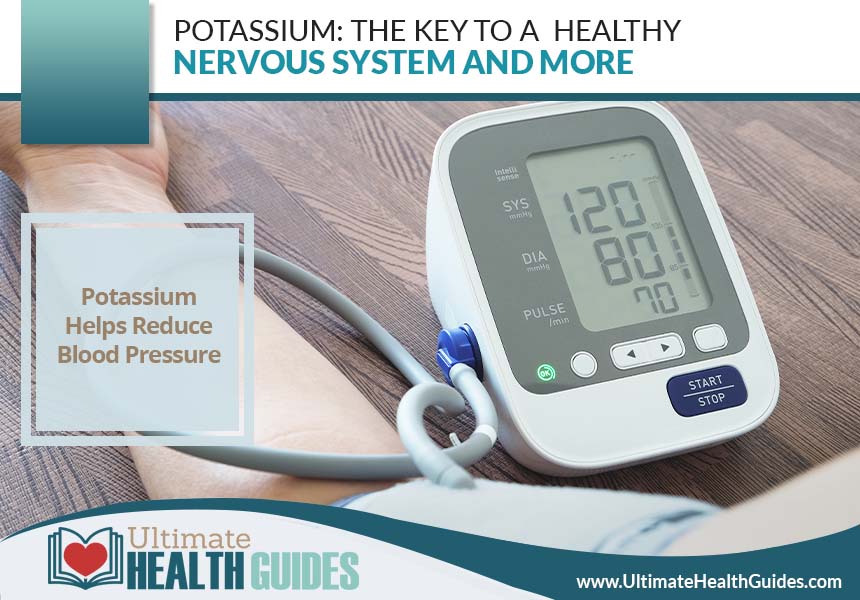
Potassium Helps Reduce Blood Pressure
You can find potassium in many places, like fruits, vegetables, and animal products. You can also buy it as a supplement. People often use potassium supplements when their bodies need more of the nutrient.
For example, athletes who sweat a lot or people with kidney problems use potassium supplements. Taking extra potassium might help stop or relieve conditions. Some of these conditions are high blood pressure, heart arrhythmia, and muscle cramps.

Potassium Helps Prevent Strokes
A stroke occurs when blood flow to the brain is blocked, depriving brain cells of oxygen and causing them to die. Strokes can lead to permanent disability and are a leading cause of death worldwide. While many different factors can contribute to a stroke, one of the most crucial is potassium levels.
Potassium helps regulate blood pressure and prevent clotting, both of which can reduce the risk of stroke. In addition, potassium helps protect against damage to the blood vessels, which can also lead to strokes. By ensuring that potassium levels are maintained, we can help reduce the risk of stroke and its severity.

Potassium Helps Prevent Osteoporosis
Osteoporosis is a condition that causes the bones to become weak and brittle. It can cause a great deal of pain and makes it more likely for the bones to break. Osteoporosis is most common in older adults, but it can affect people of any age.
Many factors contribute to the development of osteoporosis, including a lack of exercise, a diet deficient in calcium and vitamin D, and certain medications. Potassium is a vital mineral that helps keep the bones strong. It works by helping the body absorb calcium and by keeping the bones healthy. A diet that includes plenty of potassium-rich foods, such as fruits and vegetables, can help prevent osteoporosis. In addition, getting regular exercise and taking supplements can also help reduce the risk of developing this condition.
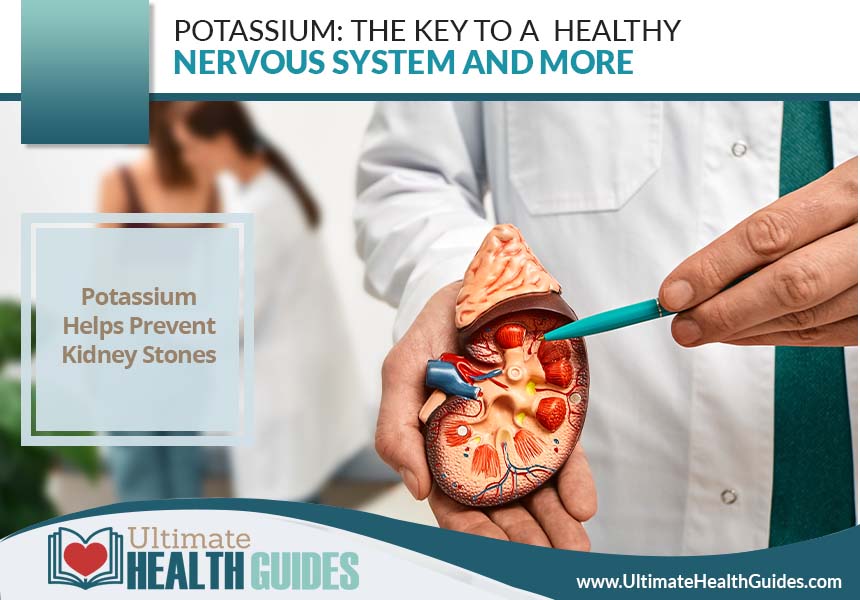
Potassium Helps Prevent Kidney Stones
Kidney stones are a painful condition that affects millions of people each year. These small, hard deposits can form when there is too much calcium or oxalate in the urine. While there are many potential causes of kidney stones, one of the most significant factors is potassium levels. Potassium helps regulate calcium levels in the body and prevents calcium from binding with oxalate in the urine.
As a result, potassium helps prevent the formation of kidney stones. In addition, potassium helps break down existing kidney stones and promotes urinary flow. For these reasons, it is important to consume foods high in potassium if you are at risk of kidney stones. Potassium-rich foods include bananas, oranges, tomatoes, and potatoes. By incorporating these foods into your diet, you can help prevent kidney stones and promote urinary health.
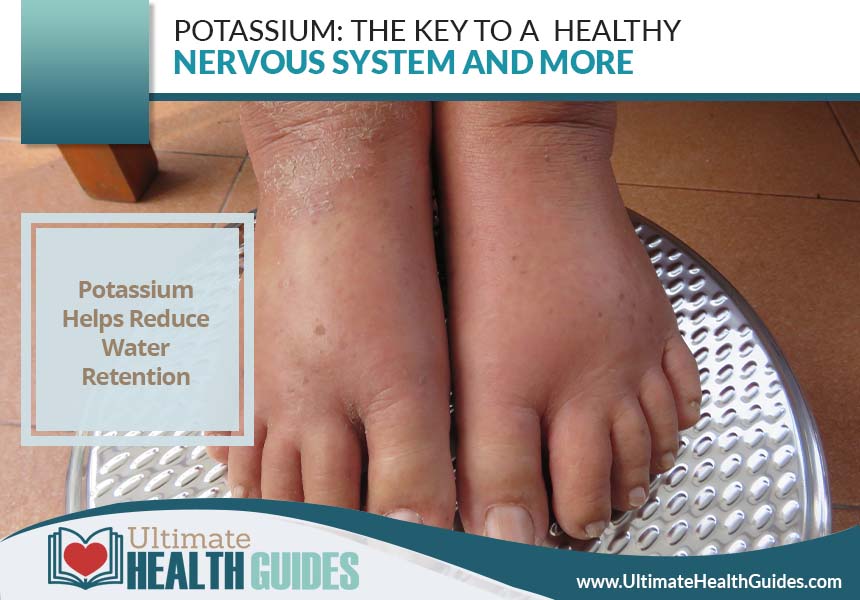
Potassium Helps Reduce Water Retention
Water retention, also known as edema, refers to the accumulation of fluid in the body’s tissues. Although it can be caused by a variety of factors, including hormone imbalances and certain medications, one of the most common causes is potassium deficiency. Potassium is an essential mineral that helps regulate fluid balance in the body.
When levels are low, fluid can build up in the tissues, leading to swelling and discomfort. Fortunately, increasing potassium intake can help reduce water retention. Foods high in potassium include bananas, sweet potatoes, spinach, and avocados. In addition, many people find that taking a potassium supplement can also be beneficial. By increasing potassium intake, it is possible to reduce water retention and promote overall health.
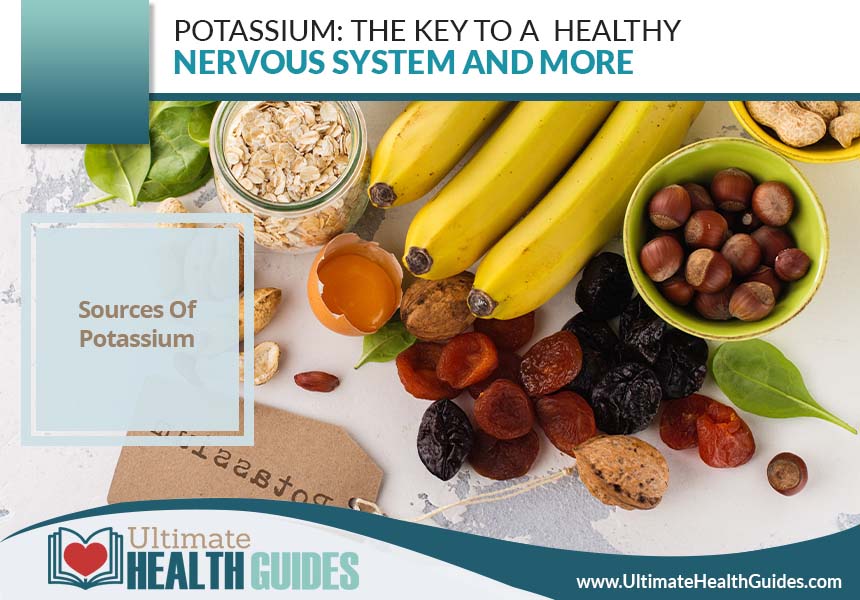
Sources Of Potassium
As anyone who has ever dealt with muscle cramps knows, potassium is a significant nutrient for maintaining healthy muscle function. Potassium is also necessary for heart health, and it plays a role in regulating blood pressure. So, where can you get potassium? Here are some of the best sources of this important nutrient.
Bananas are often thought of as the ultimate source of potassium, and for a good reason. A single banana contains more than 400 mg of potassium, making it an excellent choice for a quick potassium fix. Other fruits and vegetables that are high in potassium include sweet potatoes, tomatoes, spinach, and oranges.
For those who don’t like to eat fruits and vegetables, there are plenty of other options for getting potassium. Dairy products, like milk and yogurt, are good sources of potassium, as are nuts and seeds. You can also get potassium from meat, fish, and poultry. So there are plenty of ways to make sure that you’re getting enough of this significant nutrient. Just remember to eat a variety of foods to get the most benefit.
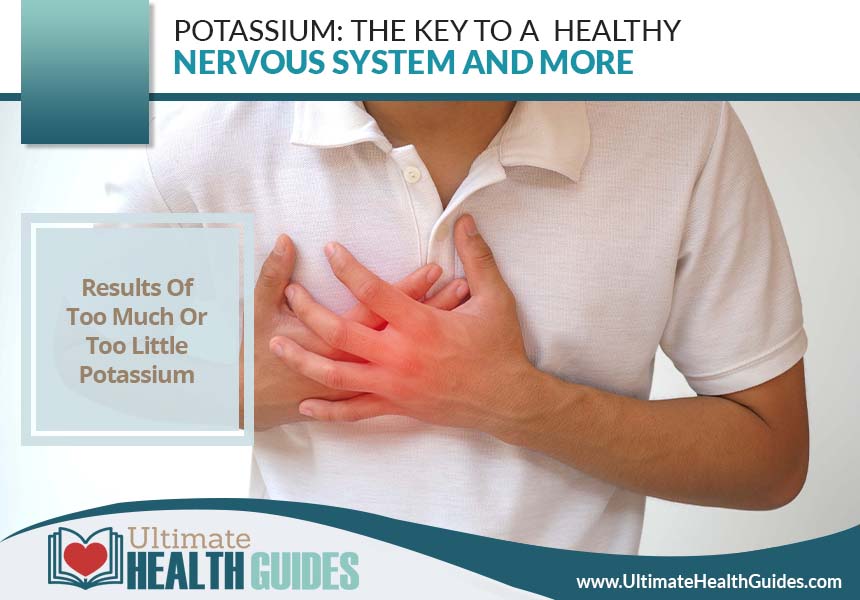
Results Of Too Much Or Too Little Potassium
While most people know that getting the right amount of vitamins and minerals is important for good health, they may not be as familiar with the role of potassium. This essential nutrient helps regulate blood pressure, maintain proper fluid balance, and support healthy nerve function. But what happens if you get too much or too little potassium?
Too much potassium can lead to a condition called hyperkalemia, which can cause muscle weakness, paralysis, and even heart failure. On the other hand, too little potassium (known as hypokalemia) can cause fatigue, muscle cramps, and an irregular heartbeat. In severe cases, it can even lead to respiratory failure. As you can see, it’s important to maintain a healthy potassium level in your body.
So how much potassium do you need? The average adult needs around 4,700 mg per day. You can get this by eating a variety of fruits and vegetables as well as some dairy products and meats. If you’re unsure whether you’re getting enough potassium, talk to your doctor or a registered dietitian. They can help you determine whether you need to make any changes to your diet.
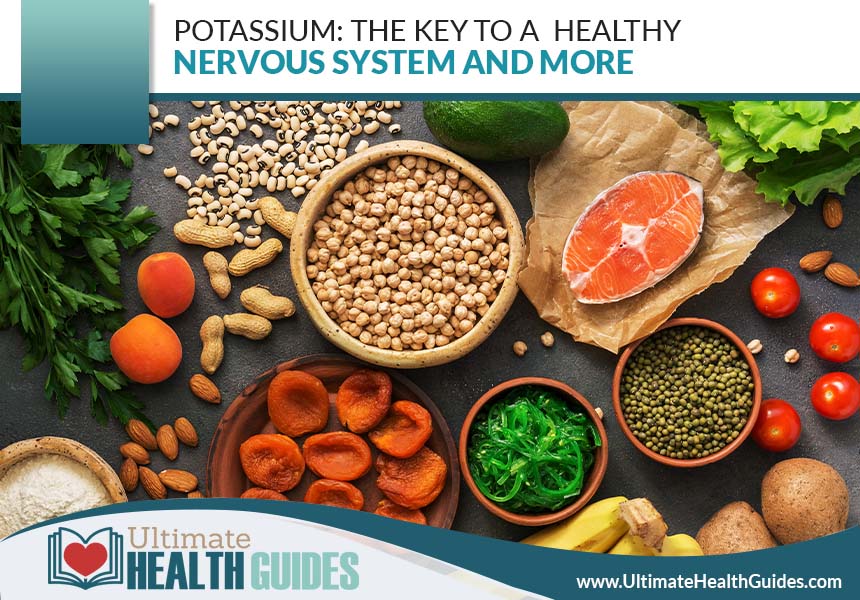
Potassium is an essential mineral that helps regulate fluid balance in the body. When levels are low, fluid can build up in the tissues, leading to swelling and discomfort. Fortunately, increasing potassium intake can help reduce water retention. Foods high in potassium include bananas, sweet potatoes, spinach, and avocados. In addition, many people find that taking a potassium supplement can also be beneficial. By increasing potassium intake, it is possible to reduce water retention and promote overall health.














